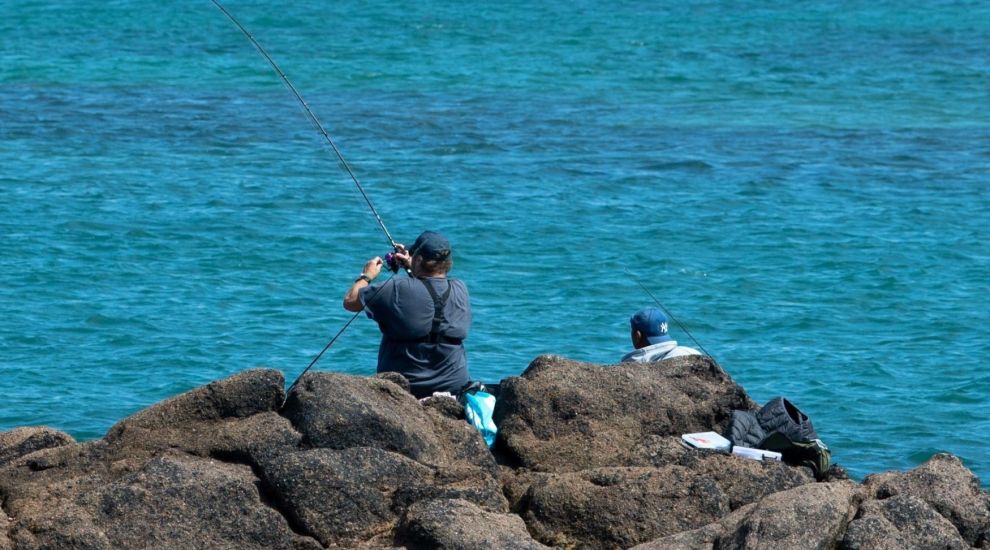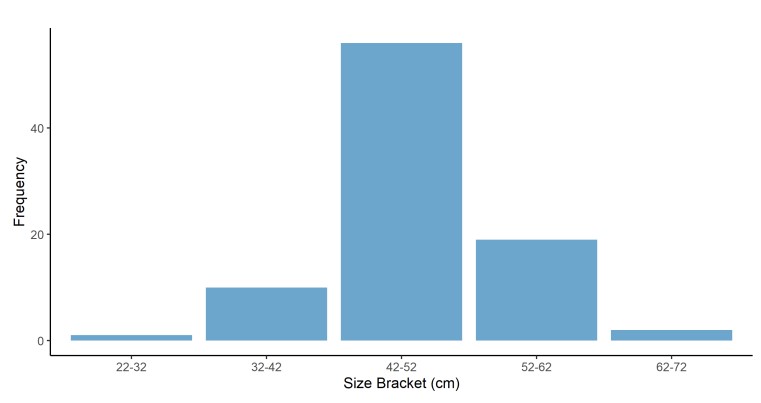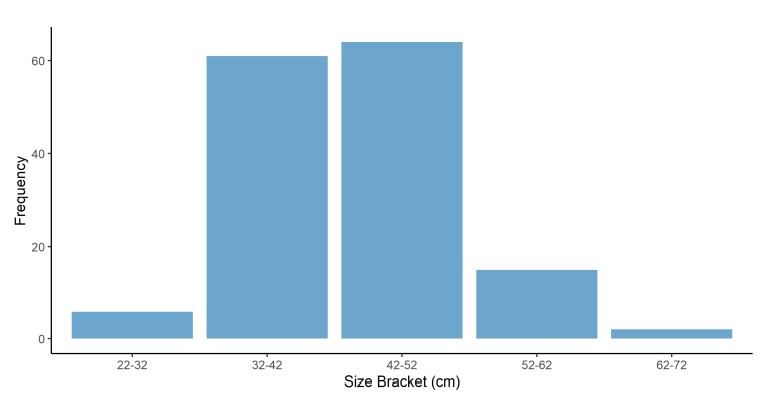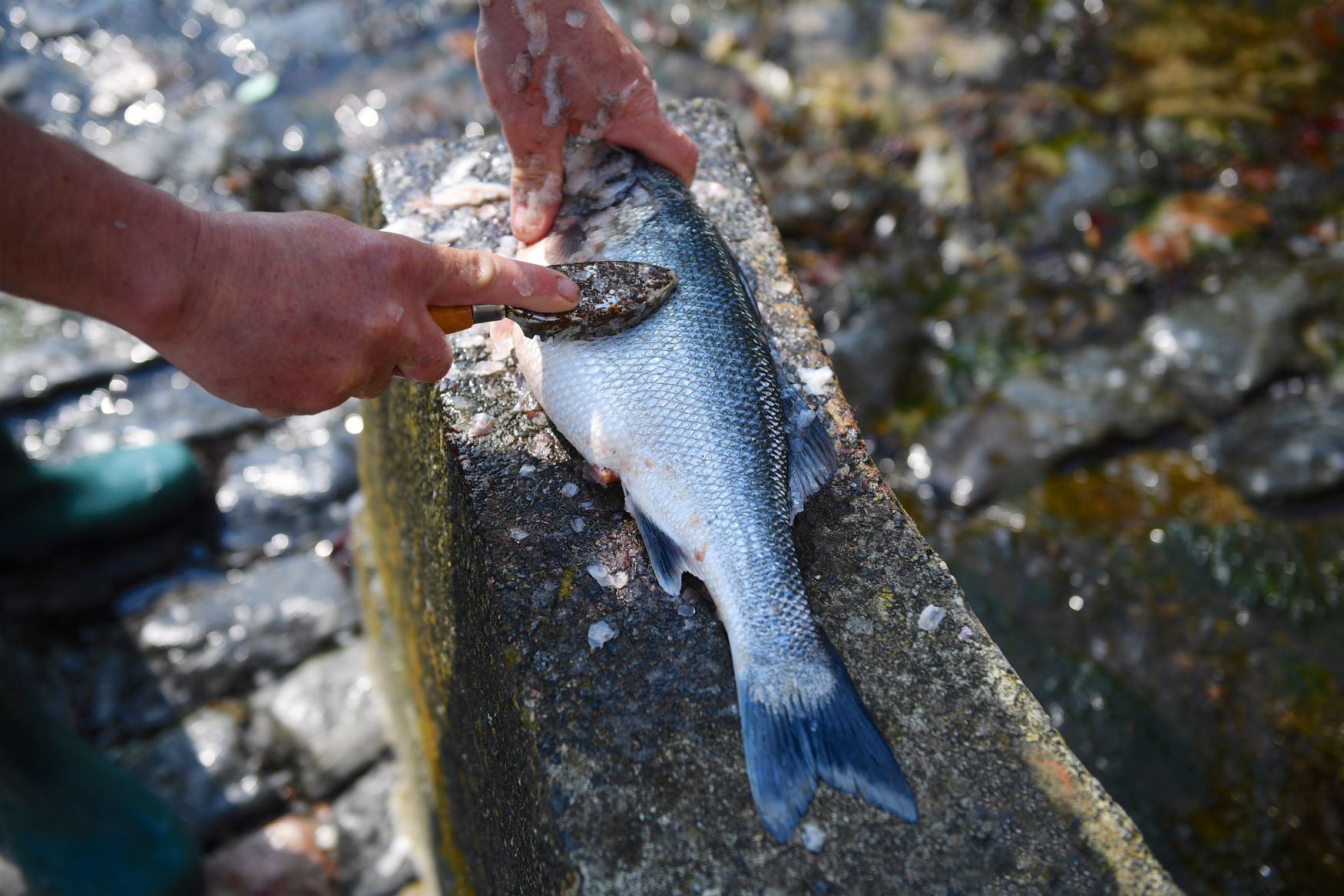


A "worrying" lack of larger bass in data captured as part of a study intended to support future management of the island's fishery has suggested new measures are needed to allow smaller fish to grow.
The study was conducted by the Government's Marine Resources team and used local fishing boats across the winter bass season to look at the impact of gill net mesh size on catchability and by-catch.
The analysis cost a total of £6,090.36, and the results will be used to inform bass fishery management from next year.
Stocks of the highly-prized bass once dropped so low that, in 2017, recreational fishermen were banned from taking any home.
At the same time, the commercial fleet were subject to tough regulations, with a maximum of 12 boats being given a permit to fish for them using rod and line – and they were only allowed to sell their catch locally.
The measures, which were introduced after commercial catches dropped by more than 50%, were steadily relaxed over the next few years.
Under the current rules, recreational fishermen can keep two fish per day from 1 April to 31 January, and anyone fishing outside of that period is limited to catch and release only.
Commercial bass fishing is restricted to a small number of Jersey-licensed vessels with a Jersey Bass Permit.
During the netting trial conducted for the recent Government study, 294 bass were caught – ranging in size from 28 to 69cm – with the most frequently caught size class being 42 to 52cm when using nets with meshes between 100 and 112mm.

Pictured: Most of the netted bass measured between 42 and 52cm.
Of the 149 rod and line caught bass, ranging in size from 29 to 67cm, the 42 to 52cm bracket was also the largest.
However, the report noted that only four percent of bass caught during netting were in the lower size bracket of 32 to 42cm, compared to 41% of hook and line caught fish.

Pictured: The size breakdown for the rod and line caught bass.
The report noted that: "The reduction in catch when using both the 105 and 110mm mesh sizes are concerning as this has shown a lack of larger fish with areas being dominated by 32-52cm fish.
"The catch of the 32-42cm size class by rod and line fishing was high and 42-52cm bass was high with the use of nets. This drop in fish [greater than] 52cm is concerning for the fishery as larger bass have a greater reproductive output with increased fecundity than smaller, less mature individuals."
It continued: "All fish were caught inshore (within Jersey’s six mile limit) and therefore catch composition of fish [under] 62cm may be due to the inshore sampling area.
"Commercial fishers were asked for their thoughts and advice on whether larger fish were present further offshore and out of the sampling area for this study. It was noted by all fishers contacted that larger fish are also not present in quantities worth targeting further offshore."

Pictured: Bass remain heavily protected by fishing restrictions but can be caught commercially.
The report concluded that: "Net fishing for bass is one of Jersey’s most used metier amongst bass permit holders. This study shows the impact different mesh sizes have when targeting both bass and by-catch species.
"For example, the 105mm net is shown to considerably drop by-catch levels but retain similar catch levels of bass compared to the 100mm mesh size. This enables fishers to alter their tactics depending on the prevalent fish species in the area as well as the size of those target fish."
However, it added that: "Worrying trends are seen in this dataset with the lack of larger, mature bass not being present suggesting management measures are needed to protect larger size class fish from being harvested and allow smaller fish to grow to these larger size classes.
"Bass are important to the livelihoods of commercial fishers as well as for recreational fishers with any new measures needing to be proportionate to all sectors to allow livelihoods to continue and angling communities to continue enjoying the sport and productive fishing."
The full report can be read online HERE.
Comments
Comments on this story express the views of the commentator only, not Bailiwick Publishing. We are unable to guarantee the accuracy of any of those comments.